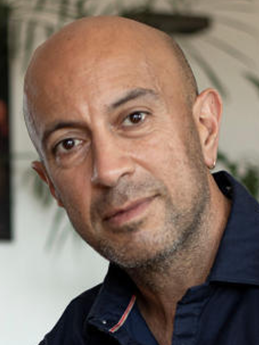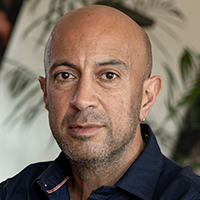Israel’s reported decision to target Mohammed Sinwar—brother of Hamas leader Yahya Sinwar—during U.S. President Donald Trump’s regional visit and while an Israeli delegation is in Doha for hostage negotiations, risks halting or slowing the talks with Hamas.
However, in the longer term, if Sinwar was indeed killed (at the time of writing, this remains unconfirmed), his elimination could potentially shift the tone of the negotiations between Israel and Hamas, mediated by Qatar and the United States. It may even prompt more flexibility from the terror group.
Mohammed Sinwar has long been one of the hardest-line figures in the Hamas leadership—arguably even more extreme than his brother Yahya. He was among the top operatives behind the October 7 attack and has since shown no signs of moderation or willingness to compromise. On the contrary, he has shown a ruthless willingness to sacrifice tens of thousands-or even hundreds of thousands-of lives if it means preserving Hamas’ hold on Gaza. He has repeatedly been an obstacle to any deal with Israel or a ceasefire. If he was indeed eliminated, it may open the door for more pragmatic voices within Hamas’ leadership, such as Khalil al-Hayya and others currently involved in negotiations with Qatar and the Americans.
A severe military and moral blow to Hamas
Beyond the political implications, the removal of the younger Sinwar would deal Hamas a significant military and symbolic blow. Still, as of this evening, there is no confirmation that the man widely seen as the most important Hamas figure at this stage of the war has been killed. The 49-year-old is considered his brother’s successor in Gaza’s political leadership following the elimination of other senior figures and potentially also of Mohammed Deif, the head of Hamas’ military wing. Like his brother, Mohammed Sinwar has become a symbolic figure for Hamas supporters.
He commanded Hamas’ Khan Younis brigade during the 2006 abduction of Israeli soldier Gilad Shalit and played a direct role in planning and leading the operation. Immediately after Shalit was taken, Sinwar made it clear to Hamas’ leadership: there would be no deal without the release of his brother Yahya. As one of the top figures in the military wing and the man who held Shalit for an extended period, Sinwar was instrumental in shaping Hamas' demands. Indeed, Yahya Sinwar’s name was included on Israel’s prisoner release lists during every Egyptian-mediated negotiation round.
Get the Ynetnews app on your smartphone: Google Play: https://bit.ly/4eJ37pE | Apple App Store: https://bit.ly/3ZL7iNv
At the time, Yahya Sinwar had blood only on his hands from suspected Palestinian collaborators, not Israelis, which made his release less controversial in Israel. However, it was Yahya himself who objected to the deal, seeing it as a capitulation to Israel. To bypass his resistance, Israeli authorities placed him in solitary confinement, after which the deal was finalized.
 Avi IssacharoffPhoto: Yuval Chen
Avi IssacharoffPhoto: Yuval ChenEven if Mohammed Sinwar was successfully eliminated, such targeted killings—while important for the war effort and morale—will not by themselves destroy Hamas’ military wing. That would require a large-scale military campaign over several years, at a high cost in soldiers’ lives and potentially those of hostages as well. And even then, it is highly likely that Hamas will not be fully defeated, not even militarily.
What could significantly weaken Hamas—and perhaps even lead to the disarmament of its military wing—is a political agreement. Egypt has been trying to push such a proposal, but Israel has so far refused, insisting on Qatar’s involvement and rejecting any alternative Palestinian governance in Gaza. This path, though politically difficult, offers the most realistic long-term solution for dismantling Hamas’ military capability and removing its next leaders along with those already eliminated.
Without such a political shift in Gaza’s governing framework, even a successful military operation or a string of assassinations—“Sinwar 1” and “Sinwar 2” style—won’t erase Hamas. The group will simply reassert control over every part of the Strip that Israel eventually withdraws from.
First published: 07:18, 05.14.25



